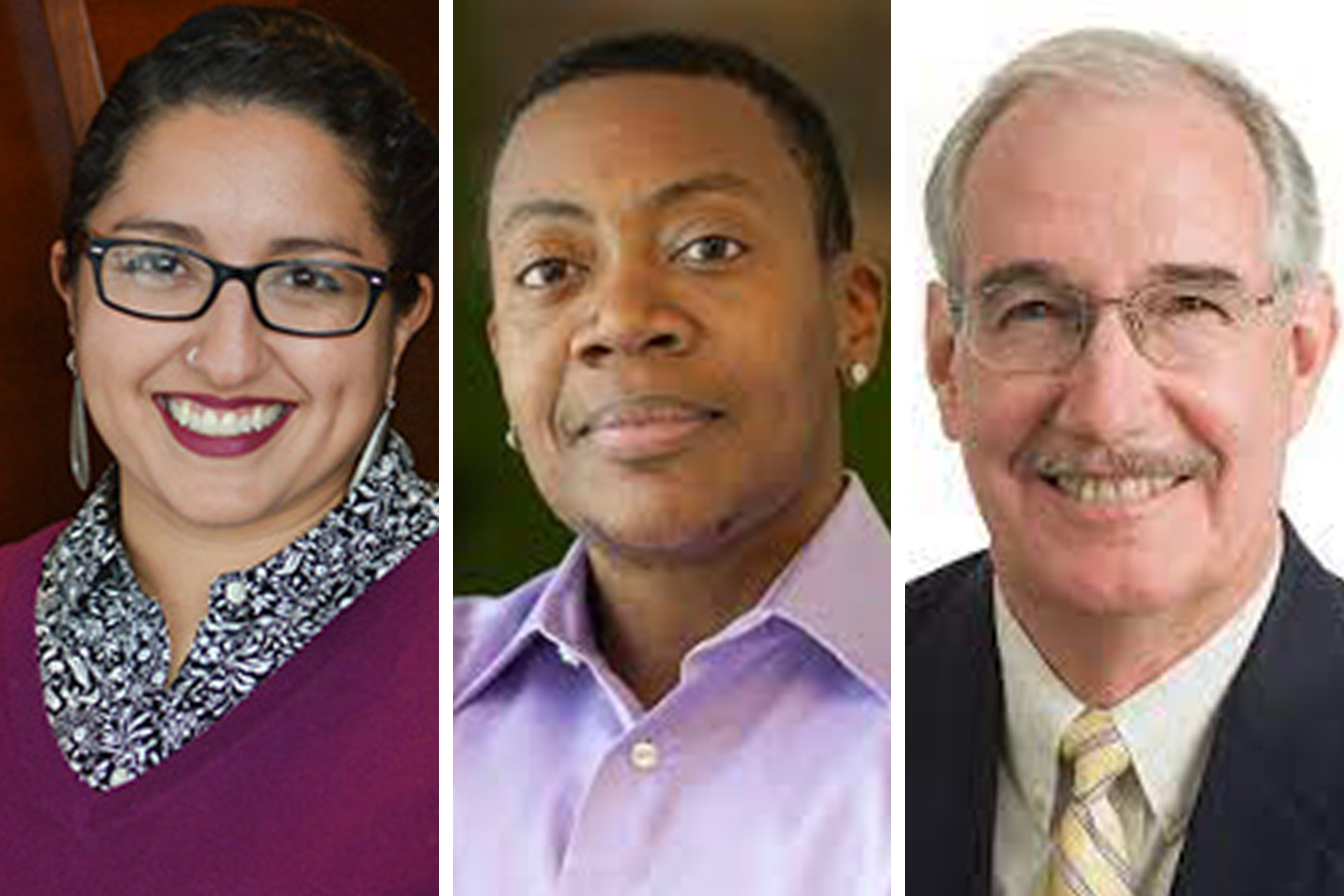Student Affairs in Higher Education
SAHE Program preparing next generation of leaders in higher education story by Joe Giordano published June 4, 2021The School of Education’s Student Affairs in Higher Education Program has been a fixture at Colorado State University for more than 50 years.
Founded in 1967, the SAHE Program is designed to prepare student affairs practitioners through a variety of offerings, including residential and online Master of Science Degrees, four graduate certificates and a massive open online course — MOOC — to introduce people to the field.
In the past year, the nationally recognized program has been undergoing changes to build upon its strong foundation in shaping well-rounded, competent and equity-conscious student affairs practitioners.
In 2017, Professor D-L Stewart became the first tenured faculty leader of the program, as well as an assistant professor. Since then, Carmen Rivera, talent manager for organizational development in the Division of Student Affairs, has been a co-chair of the program since 2020.
Recently in May, Stewart transitioned to a new role at the University of Denver as the department chair for its higher education master’s and Ph.D. programs, with Dave McKelfresh — a long-time faculty member for the SAHE program and former co-chair — stepping back into that role along with Rivera for the 2021-2022 academic year at CSU.
Through it all, leadership is focused on moving the program forward.
“Taking on some of the leadership role has been really great to think about how we envision the program for the next decade or so,” Rivera said.
According to Rivera, they are currently examining the strategic plan for the program, looking where they want to be in the next 10 years.
Last summer, Rivera said they updated their curriculum, adding a thesis to accompany the portfolio option as a capstone project for the master’s program. She added that students also can now specialize in particular areas of higher education through elective courses.
A unique program

Carmen Rivera (left), D-L Stewart and Dave McKelfresh are just a few of the key people who have helped lead the SAHE program over the years. Stewart recently transitioned to the University of Denver, with Rivera and McKelfresh serving as co-chairs for the upcoming 2021-2022 academic year.
Originally named the College Student Personnel Administration Program, SAHE graduated its first students in the spring of 1968. Today, SAHE regularly has 25-35 students in the program.
“SAHE students are incredibly curious, intellectually sharp and willing to push themselves and their faculty to see and act beyond traditional theories and norms of practice toward those which are more liberatory and transformative,” Stewart said.
Students in the program learn from a cadre of mid- and senior-level scholar-practitioner faculty – people who are currently doing the work of student affairs to teach the work of student affairs. Stewart said it is led by scholar-practitioners to equip practitioner-scholars to contribute to the learning, development and growth of students and to the transformation of student affairs practice toward deeper equity.
Rivera is one of those faculty members who splits their time between teaching and working in the Division of Student Affairs. As an alumna of the master’s program, she said SAHE draws a diverse group of students from different backgrounds who have a passion for making the world a better place, whether it’s through equity and social justice or being action oriented.
“It’s like a living-learning lab for the students,” Rivera said. “Students who are attracted to our program want to have that scholar-practitioner experience, plus have a philosophical view on what higher education can do for people.”
Lela Hautau, who is in the master’s degree program, said SAHE’s focus on social justice and its reflective/ethnographic practice attracted her to the program.
Hautau, who would like to go into university housing and residential life after graduation, produced a 200-page portfolio that included a series of reflections as well as work highlighting professional competencies for her final project.
“I love SAHE,” she said. “It has exceeded my expectations of what I thought grad school was going to be. SAHE gave me the support and the resources. The reputation of SAHE is helping as I’m job searching when I tell folks I’m from CSU.”
Helping students

Students in the SAHE program learn from scholars as well as faculty members who are currently doing the work of student affairs.
As SAHE enters a new decade, the strategic focus remains on the students.
Rivera said her students push her as a professor and expect a lot, especially when it comes to equity and inclusion in higher ed and the role it should play and can play in our institutions. She said SAHE facilitates a community committed to learning and growth — something that continued even during the COVID-19 pandemic.
Since teaching virtually, Rivera said students have “rolled with the punches,” and the faculty have gained some valuable lessons as well.
“We’ve been grateful in what we’ve learned about our field during the pandemic, and we want to be able to say how can we use what we learned in this experience to move us forward,” she said. “We’re not going to be the same when we come back. That’s probably our biggest focus right now.”
SAHE leadership recognized by ACPA
In March, both Stewart and Rivera were recognized by the American College Personnel Association, a leading student affairs association based in Washington, D.C.
Stewart received the Contribution to Knowledge Award, which recognizes outstanding contributions to student affairs through research and other scholarly endeavors. Rivera won the ACPA-College Student Educators International’s Marylu McEwen Dissertation of the Year Award, an honor that recognizes a dissertation’s contribution to student affairs and student services.
“This national recognition for Carmen and D-L highlights their personal contributions to the field as well as the strength of the SAHE program at CSU,” said Blanche Hughes, vice president for student affairs at CSU. “To have these two outstanding professionals lead the SAHE program demonstrates why it continues to be one of the most well-respected programs in the country.”
Stewart said the ACPA has acknowledged and celebrated his scholarship since the beginning of his career. The honors include the 2002 Burns Crookston Doctoral Research Award and being named an Emerging Scholar in 2004, among others.
“I owe a tremendous debt to the students, current and former, who have shared their lives and stories with me. To receive this association’s highest honor for research and scholarship means a great deal to me,” he said. “To have my 20 years of research and scholarly contributions in the fields of student affairs and higher education recognized in this way from an association that represents the college student educators who I hoped would use my work to improve the college experience for minoritized students is deeply meaningful.”
Rivera’s award-winning dissertation for CSU’s Higher Education Leadership program examined leadership in higher education and the intersections of racism, sexism and heterosexism and how navigating those experiences can offer new insights into leadership.
“Writing a dissertation is a lot of work, and a lot of hours spent alone in this solitary marathon,” she said. “So, it’s really great to have the validation of the hard work. But for me personally, it really means that the stories of the participants of my dissertation and what we learned together can contribute to the field. The recognition is the amplifying of their voices.”